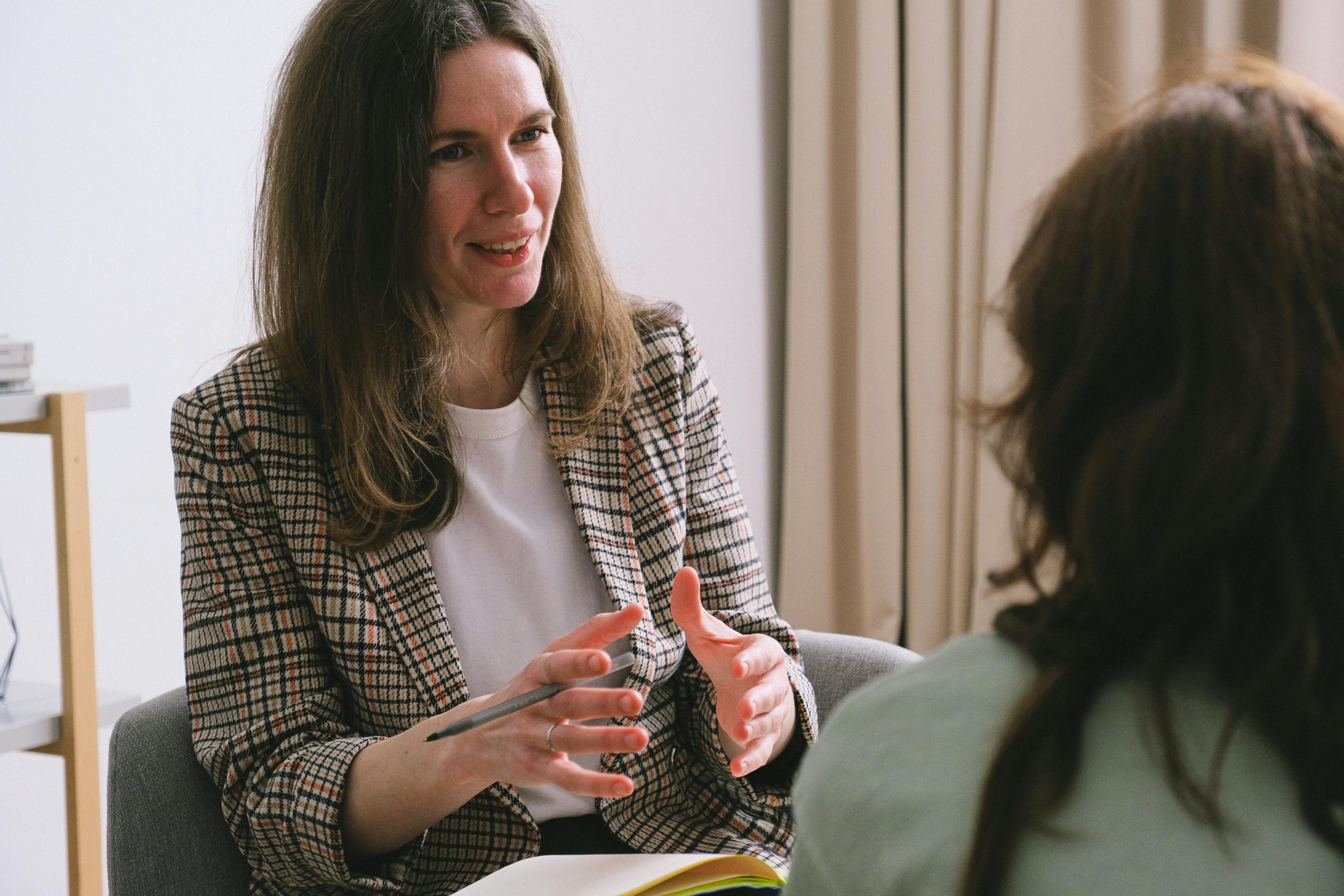Regardless of your profession, if the individuals that you support are Autistic, chances are that you’re reading this page because you’d like to understand them better, offer them empathy and respect, and communicate more effectively with them… and for that, we applaud you!
Thank you for being part of the change, for being committed to meeting the people you work with halfway. We think that if everyone did that, the world would be much more inclusive, accessible and fulfilling for everyone.
Understanding Autism is at the heart of how you engage respectfully and effectively with the Autistic people with whom you work. Autistic experiences are not necessarily self-evident or self-explanatory to professionals working with Autists, unless you are yourself Autistic. So, being curious and open to learning about Autistic experiences from Autistic people will make you a better, more helpful clinician, therapist, support or ally.
Of course, learning is lifelong. Even professionals with plenty of experience can (and should!) continue to learn more about Autism. Given the heterogeneity of Autistic experiences, learning more about the complexity and nuances of Autism from the vast experiential knowledge of the Autistic community, will benefit your practice and the Autistic people you support.

The best way to educate yourself about Autism is not through University postgraduate study or textbooks, but by listening to Autistic voices and testimonies directly. Autistic people are the pre-eminent experts in Autism and we can provide insights into what your clients might be experiencing, and how best to support, uplift, respect and help them. We understand what it feels like to be Autistic, what challenges we face, and what strengths we might bring to mitigate those challenges.
So, it’s lucky you’re here! Because a good place to begin is right here, on this site. We have many workshops, courses, free articles and resources, the vast majority of which are Autistic-produced, delivered and led. You might like to start by learning more About Autism, or you might like to read some articles about specific challenges that the Autistic people with whom you work might be facing, such as sensory issues, communication differences, or social differences.
Learning from Autistic people is an example of how, collectively, we can collapse the “double-empathy problem”. The double-empathy problem was first theorised by Autistic academic, Damian Milton, who challenged the stereotype that Autistic people lack empathy and brought attention to a bidirectional lack of empathy that exists between Autistic and non-autistic people. Just as Autistic people might find it hard to understand non-autistic social-communication norms, Milton argued, so too, non-autistic people find it equally as hard to understand Autistic social-communication norms. Unfortunately, the onus has most frequently been on Autistic people to learn non-autistic ways of being in the world, and non-autistics have often abrogated responsibility for meeting us halfway, for learning something about us, from us. Until now, it’s been up to Autists to bridge the empathy gap, even though that lack of empathy was two-way, mutual or bidirectional. That’s why it’s so important that you’re here, learning from Autistics.
The more you learn from the Autistic community, the more empowered you will be to make informed, respectful and relevant decisions to support your Autistic clients, and to help them to be autonomous in their own lives. The more you learn, the less likely you are to inadvertently “do harm” through misunderstanding, invalidating, or exacerbating your Autistic clients’ needs and challenges.

One of the core criterion for receiving an Autism diagnosis is a significant difference in social communication. While no two Autistic people are the same, many Autistic people display differences in the way that they communicate and their preferences for socialising and relationships. Whilst there has been focus in the past on teaching Autistic people how to communicate and socialise “non-autistically”, we encourage you to learn more about Autistic communication so that you can communicate and socialise more “Autistically”. This will not only establish rapport and trust with your clients, but you are also likely to achieve much greater benefits for and with your Autistic clients.
For example, many Autistic people will find it intensely uncomfortable to begin a conversation with “small talk”. So, checking in on their preference for how to begin a conversation is a good idea. Other Autistic people may have difficulty understanding your facial expressions and inferring communicative intent based on context. So, not relying on your tone, facial expression or body language to carry your meaning may be important. Other Autistic people again are literal thinkers and can be blunt and honest in how they respond. This isn’t rudeness, it’s honesty and a preference for “saying what we mean”. You can communicate in this way too! Even others may prefer not to make eye contact (could you sit next to them, not across from them?), may experience sensory or cognitive overload if there are too many stimuli (are you wearing strong perfume today? Are the lights too bright?), or if a lot of information is presented at once (do you need to provide a written summary if it is necessary to give lots of information at once?).
To communicate best with each individual, we suggest that you ask how a person prefers to communicate, and offer options for them to provide that information to you (e.g., SMS, video conferencing, email, phone, or face to face). Just as not every non-autistic prefers to communicate in the exact same way, neither does every Autistic want to communicate in the same way. You can help your Autistic clients to prepare for any communication with you by making the purpose or reason for your communication transparent (e.g., is this a formal appointment? Are you seeking their feedback? Will you be requiring them to perform a task?).
It’s also important to be aware that some Autistic people benefit greatly from other approaches, like providing photos of you and the space in which you work, or a map of your location and possible parking places. Equally, having some communication supports on offer (e.g., picture schedules, tablets, or picture exchange systems) indicates your acceptance of communicative differences.
Ultimately, again, every individual is different, so it pays to ask the Autistic people you support how they would best feel supported, and how you can accommodate their needs.

Join our founder and Head of Research, Dr Melanie Heyworth, in this invaluable online webinar, as she redefines Autism from an Autistic perspective. Melanie examine the ways in which neurodiversity can help you to reframe your thinking about Autism and explores how this new understanding can inform the way you approach and support the Autistic children in your care.
This comprehensive learning opportunity is grouped around three elements – reframing Autism, neurodiversity, and implications for practice.
Learning Objectives:
You will also receive:
Cost: $129 AUD
Delivery: On-demand webinar, so you can learn at a time that works best for you.
Duration: 2.5 hours

Respectful communication goes both ways – just as the Autistic people you support want to try their best to communicate effectively and respectfully with you as a professional, it is also your responsibility to model respectful communication to them. If you both have an understanding of what safe, effective communication looks like within the dynamic of your professional relationship, you will both feel more comfortable and confident navigating your interactions.
Here are a few guiding principles:

Unlock valuable knowledge and practical strategies with our Professional Short Course Bundle that includes two professional development opportunities:
This comprehensive bundle offers you the opportunity to deepen your expertise and make a meaningful difference in the lives of your Autistic clients or students. Gain 12 hours of CPD and essential skills to better understand and support Autistic individuals by enrolling today.
Professional Short Course: Reframing Autistic Behaviour
Our Professional Short Course on Reframing Autistic Behaviour is a practical and rewarding course that explores common Autistic behaviours (including meltdowns, shutdowns and burnout) and their underlying root cause. It will increase your understanding of your Autistic clients as well as giving you the skills to increase their flourishing across the lifespan with respectful support that fosters resilience, autonomy, and authenticity.
NEW! Professional Short Course: Reframing Autistic Communication and Socialisation
This is an enlightening and practical course that delves into the unique ways Autistic individuals communicate and socialise. Rooted in the double-empathy problem, this course repositions communication as a cultural exchange, challenging outdated and pathologising views. It will enhance your understanding of Autistic clients and students, equipping you with the knowledge and strategies to support authentic and meaningful interactions.
Delivery: On-demand, so you can learn at a time that works best for you.
CPD hours: 12 hours
Cost: $449 AUD
Whether you’ve been supporting Autistic people for a long time or just a little while, learning is a lifelong journey for all of us – so naturally, questions are going to arise from time to time! Here, we’ve covered some of the more common questions we’re asked. But we’re always happy to help if you have a question that isn’t addressed here. Please feel free to send us a message with any queries.

The Reframing Autism team would like to acknowledge the Traditional Owners of the lands on which we have the privilege to learn, work, and grow. Whilst we gather on many different parts of this Country, the RA team walk on the land of the Awabakal, Birpai, Whadjak, and Wiradjuri peoples.
We are committed to honouring the rich culture of the Aboriginal and Torres Strait Islander peoples of this Country, and the diversity and learning opportunities with which they provide us. We extend our gratitude and respect to all Aboriginal and Torres Strait Islander peoples, and to all Elders past and present, for their wisdom, their resilience, and for helping this Country to heal.